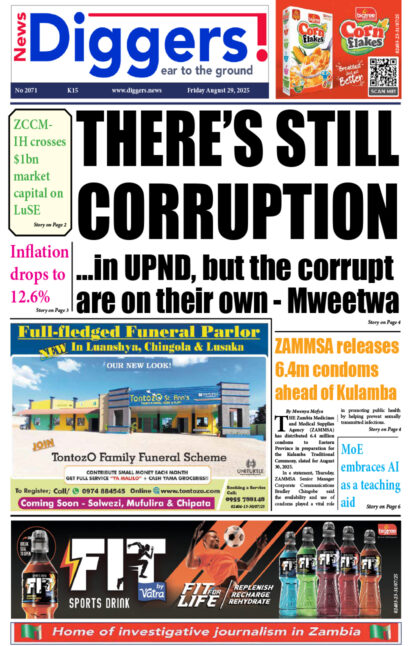The National Action for Quality Education in Zambia (NAQEZ) says the resolve by some institutions of higher learning to continue offering lessons through e-learning platforms may face challenges with internet connectivity as some students are in remote parts of the country.
Last week, the University of Zambia (UNZA) Senate resolved that teaching and learning at the institution would continue via Moodle and Astria online platforms during the period of the Coronavirus pandemic in the country.
But commenting on the development in an interview with News Diggers, NAQEZ executive director Aaron Chansa observed that the resolve, despite being a good idea, would be faced with monumental technological challenges, especially rural parts of Zambia.
“The idea is good on face value; it looks like it’s the way to go. But this idea faces monumental technological challenges, especially in rural areas of our country where internet facilities are bad or even non-existent. From where we stand, the internet facilities are not everywhere in this country and some of our students are coming from areas where internet is a challenge. Therefore, even when the University would want to go that route, it begins to be a bottle-neck and also disadvantaging to some students who might not have access to internet,” Chansa observed.
“And this is not only for students but also learners in primary schools because in a crisis like the coronavirus crisis, we are supposed to go the electronic way of learning by use of ICTs. But with the challenges that we have in this country where computers are not readily available in most schools, it begins to be a very big challenge for teachers to manage to teach or even to communicate electronically either with the pupils or amongst themselves as teachers.”
He appealed to the government, through the Zambia Information and Communications Technology Authority (ZICTA), to invest in internet facilities everywhere in the country.
“Our appeal is to the government through ZICTA, working with the two Ministries of Education, to make sure that we have these facilities across the country. It’s not demanding for too much, but we need to make sure that facilities such as internet are taken to all the areas of our country so that these ICTs become a reality and help to make sure that in certain circumstances like this one, we can go that route and make it very easy for teachers and learners to interact electronically. Even meetings, if we had a country with adequate internet facilities or developed ICTs, we can easily stay home, work from home and have meetings electronically and make things move just like that. But as things stand now, we are afraid that the aspect of communicating or teaching electronically is not feasible,” said Chansa.
“It might be feasible in a few areas like Lusaka and on the Copperbelt but in other provinces, it’s not possible because of the challenges of internet and modern facilities like computers and smartphones. So we look forward to a time when ZICTA will see it to be befitting to make sure that all areas in our country have access to fast internet which can ultimately help us to improve the quality of learning and teaching in our institutions.”
























